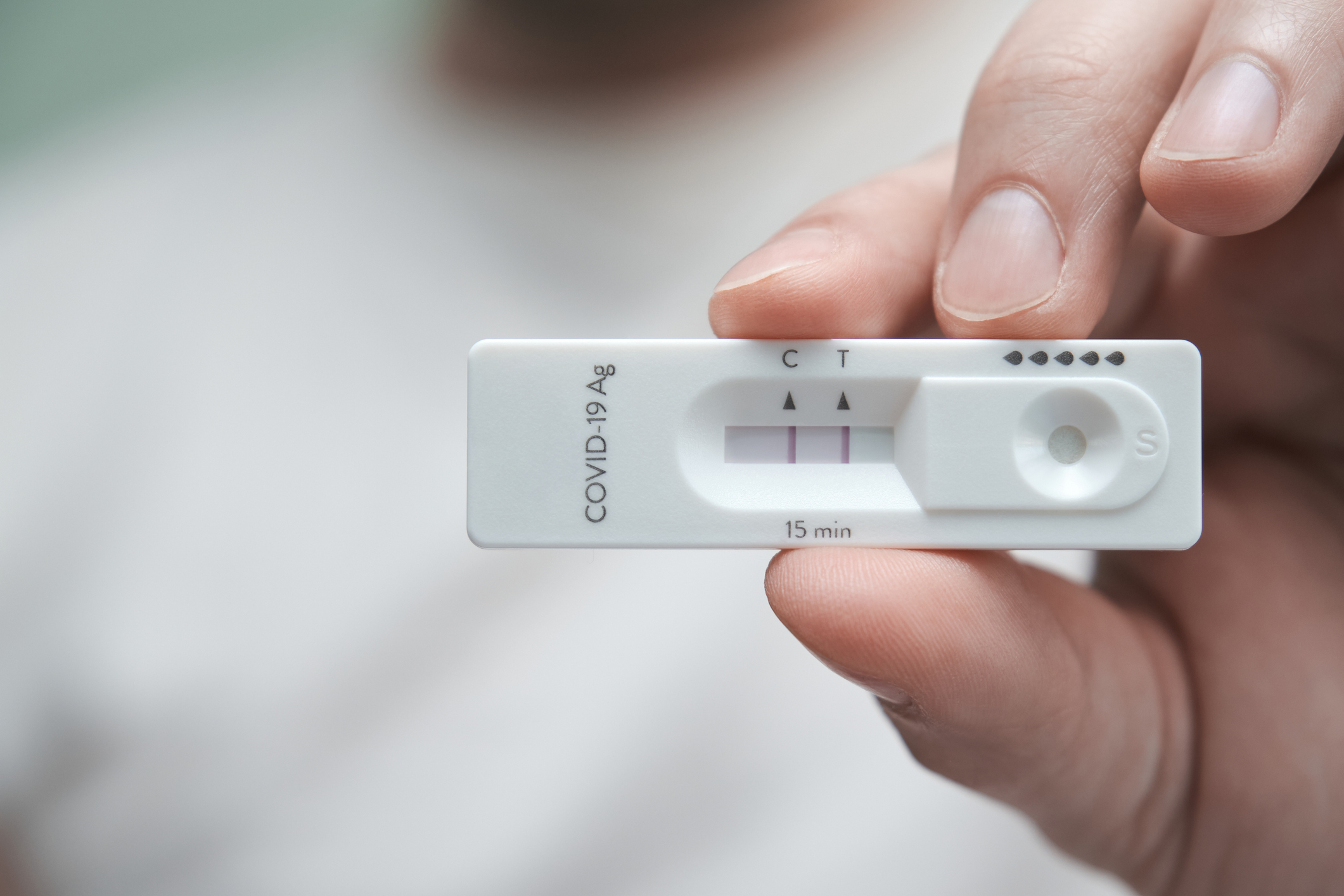Even among fully vaccinated and boosted populations, breakthrough cases of COVID-19 are becoming commonplace. Many people discover by using an at-home test that their recent sore throat and congestion are not allergies or a cold, but rather the novel coronavirus. At-home tests are a great tool to help stop the spread of COVID, but not enough people are taking the next step and reporting their positive results to their local health agency – which can result in an inaccuracy of reported cases and an unprepared health system.
In addition to isolating until symptoms fully resolve, it’s important for people who test positive for COVID at home to contact their doctor. Depending on one’s health and vaccination status, there may be treatment options available, including antiviral drugs for older adults and people with underlying chronic health conditions. For those who cannot tolerate anti-virals because of drug interactions or other risk factors, monoclonal antibodies may be recommended for people at risk of developing serious illnesses.
Many doctors will not report a positive result from an at-home COVID test, and some workplaces will require a PCR test taken at a clinic or medical office to confirm. People who have tested at home with positive results can inform their local health department of their COVID infection. Many at-home rapid tests are also linked with an app to receive and report results by scanning a QR code with a smartphone or tablet.
Reporting positive COVID results helps provide more information to researchers about vaccine efficacy, and gives hospitals time to prepare for surges in serious illness and admissions. Accurate tracking also informs health experts giving the public guidance about masking, distancing, and vaccination.
Learn more about preventative steps and local COVID-19 guidance by visiting your community’s health unit website, or the Centers for Disease Control and Prevention. In areas with a high COVID-19 infection rate, wearing a mask indoors in public is still recommended in addition to keeping up to date on vaccines, getting tested if you have symptoms, and taking extra precautions if you are at risk for severe illness.
Learn more about global infection rates and preventative measures by following this link to the World Health Organization COVID-19 Dashboard.






Add Your Voice
0 Comments
Join the Discussion